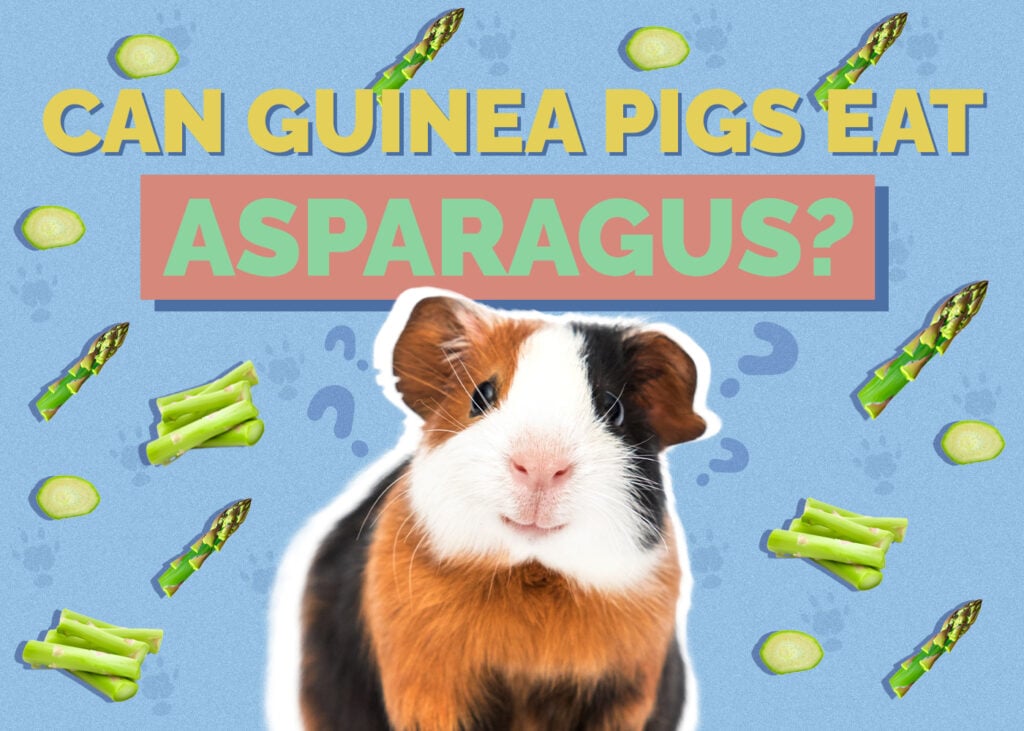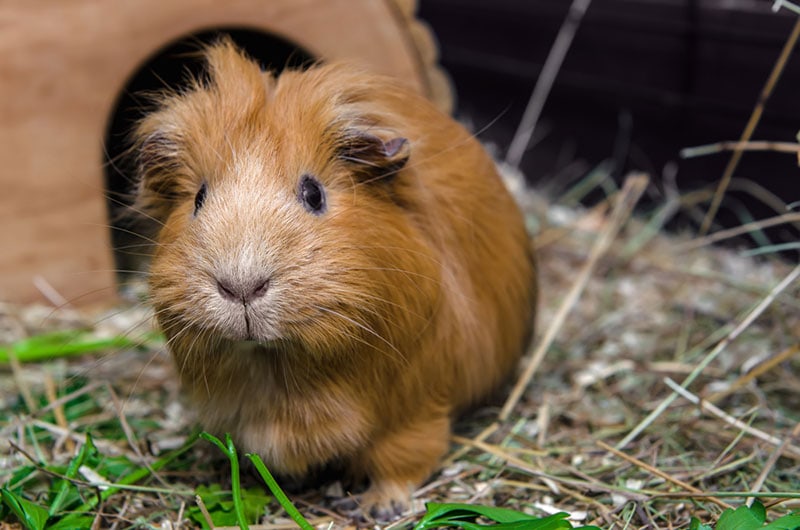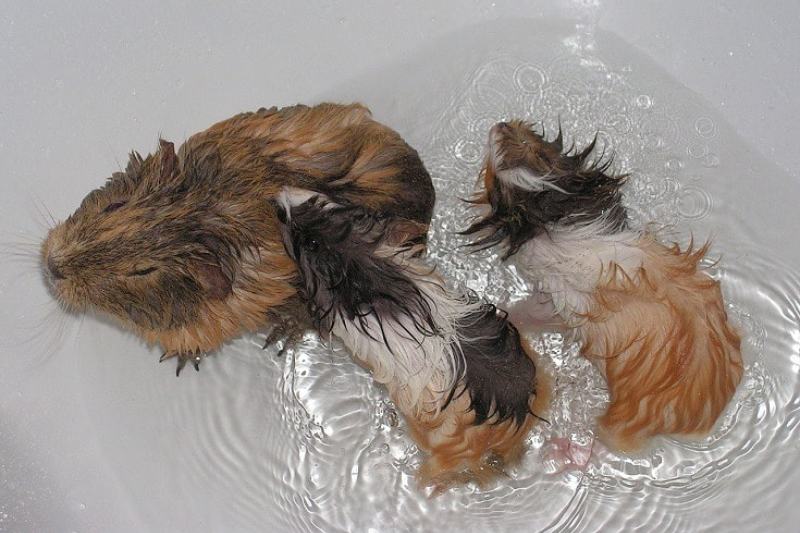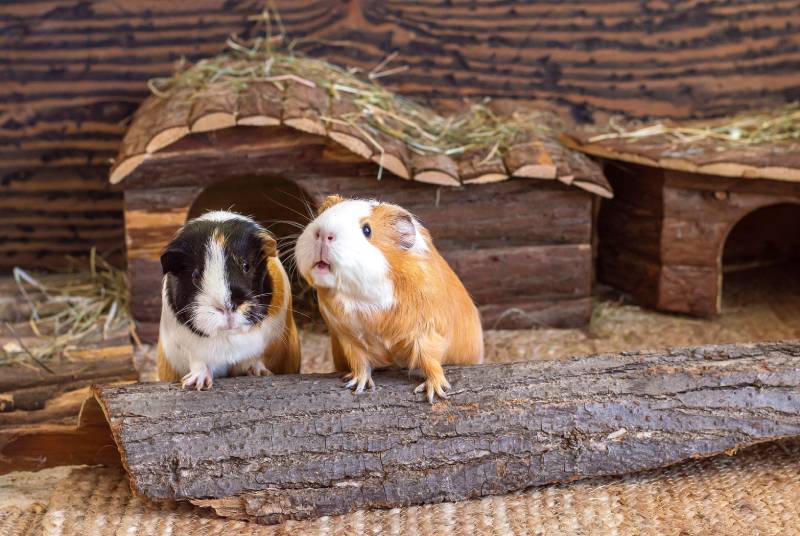Can Guinea Pigs Eat Asparagus? Vet-Approved Facts & Nutritional Guide
Updated on

Humans domesticated guinea pigs over 3,000 years ago, and although they were originally raised for food, people also kept them as pets. Guinea pigs remain a diet staple in many parts of South America, but their popularity as pets has spread across the globe. Part of keeping any animal is ensuring they’re fed properly, and many of the fruits and vegetables we enjoy can also be fed to our guinea pig friends, but it’s important to know which ones are safe. If you are partaking of a spear or two of asparagus and want to know if you can share it with your guinea pig, the answer is yes, with a few cavy caveats!
Nutritional Value of Asparagus
Asparagus gets its name from the amino acid Asparagine, which was first discovered in the asparagus plant. It also contains Asparagusic acid which is harmless, but is responsible for the pungent aroma it produces in urine. This fragrant feature has given asparagus an undeserved bad rep, making it a less popular vegetable, but it packs a nutritional punch! Asparagus is high in Vitamin C, which for species that are unable to synthesize this vital nutrient in their bodies, such as humans and guinea pigs, is a huge selling point. The fact that it is also rich in Potassium, Vitamin A and fiber, means that asparagus is a great option when looking to expand your cavy’s diet.

The 3 Things to Consider When Feeding Your Guinea Pig Asparagus
Despite its high nutritional value, asparagus is not a substitute for a complete and balanced diet that includes timothy hay and commercial pellet food. One major concern is the calcium-phosphorus ratio of this vegetable, which is around 1:2. Research has found that high phosphorus intake is associated with soft tissue calcification.
1. Calcium Content
A 100 gram serving of asparagus contains approximately three times the daily calcium requirement of guinea pigs, so it is important to feed it only as an occasional treat, in small amounts. Too much calcium can lead to an increased risk of developing urinary stones, which can be dangerous, or even fatal to guinea pigs.
2. Guinea Pig Behavior
Guinea pigs are instinctively neophobic, meaning they’re afraid of new things. Remember that they are a prey species,so it makes evolutionary sense for them to retain this behavior. However, it’s worth noting that domesticated animals aren’t as flighty as their wild counterparts. Nevertheless, guinea pigs develop strong food preferences early in life and might not accept new things no matter how good they are.
Guinea pigs can eat a variety of fruits and vegetables, such as carrots, cantaloupe, tomatoes, and bell peppers. All these foods provide excellent sources of vitamin C to meet your pet’s nutritional needs. The ones you should avoid include the usual suspects, like onions, garlic, and avocado. If you plan on supplementing your pet’s diet with a range of different foods, be sure to start them young.
3. Preparation Method
If you choose to offer your guinea pig asparagus, make sure it’s raw and cut into small pieces. Your pet can enjoy the entire stalk, even the hard bits you might not eat. They’ll provide an excellent source of fiber and help keep your cavy’s teeth in check.
Guinea pigs can get salmonellosis just like humans. Sadly, the dehydration caused by the ensuing diarrhea makes this condition often fatal. Therefore, you should always wash all fresh produce thoroughly before giving it to your pet.
Don’t give your pet cooked asparagus. The vitamin C content dissipates quickly when heated, so it would be a shame to remove the nutrition it provides.

 Final Thoughts
Final Thoughts
Raw asparagus offers an excellent source of vitamin C, which is an essential part of guinea pig diets. Given as an occasional treat, this vegetable is perfectly safe for your guinea pig, but moderation is key due to the high calcium content and calcium-phosphorus ratio.
Featured Image Credit: Pezibear, Pixabay











